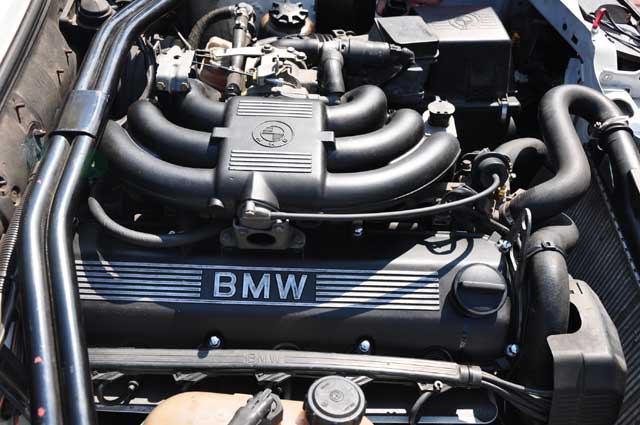Why the BMW Engine Is Thought About One of the Best in Luxury Vehicles
Revealing the Intricacies of Next-Generation Power Units: a Deep Dive Into Advanced Engine Designs and Advancements
As we stand on the precipice of a new period in transportation, the intricacies of next-generation engine styles bid us to discover the advanced modern technologies and developments that assure to redefine the driving experience. Delving much deeper right into the realms of discharge control, smart engine administration systems, and the horizon of power system advancement, we find ourselves on the cusp of a makeover that promises to improve the landscape of flexibility as we understand it.
Advancement of Engine Materials

The shift in the direction of advanced engine materials has likewise made it possible for engineers to make engines with greater power results while keeping fuel effectiveness criteria. As an example, making use of light-weight products lowers the total weight of the engine, leading to improved gas economy and lower emissions. Furthermore, innovations in products modern technology have actually allowed for better thermal management within engines, resulting in increased reliability and longevity.
Turbocharging and Supercharging Technologies
Just How do Turbocharging and Supercharging Technologies reinvent engine performance and performance in modern-day automobiles? Supercharging and turbocharging are modern technologies that dramatically improve engine performance by enhancing the amount of air consumption into the burning chamber. Turbocharging accomplishes this by utilizing a wind turbine driven by exhaust gases to pressurize the consumption air, while supercharging makes use of a belt- or chain-driven compressor to achieve the very same impact.
These modern technologies allow smaller, a lot more fuel-efficient engines to produce power equal to larger ones, referred to as downsizing. Forcibly more air right into the cyndrical tubes, turbo charging and turbocharging improve burning efficiency, leading to raised horsepower and torque outcome without a significant boost in engine size. This causes better velocity, hauling ability, and overall driving performance.
In addition, supercharging and turbocharging add to boosted fuel effectiveness by permitting the use of smaller engines that consume much less gas under normal driving conditions - bmw engine. This combination of boosted efficiency and efficiency has actually made turbocharging and supercharging essential components of lots of contemporary engine styles
Exhaust Control and Environmental Impact
With enhancing international problems concerning air top quality and ecological sustainability, the implementation of discharge control innovations in lorries plays a crucial function in minimizing unsafe pollutants released into the environment. Modern lorries are equipped with sophisticated emission control systems that help minimize the environmental impact of auto procedures. Catalytic converters, for circumstances, are designed to transform poisonous gases such as carbon monoxide gas, nitrogen oxides, and hydrocarbons right into much less harmful substances like co2 and water vapor.
In addition, improvements in engine modern technology, such as the assimilation of exhaust gas recirculation systems and discerning catalytic decrease, have considerably contributed to lowering emissions. These technologies operate in tandem to enhance combustion efficiency and lessen the launch of damaging contaminants into the air. Furthermore, the growth of crossbreed and electric vehicles stands for a critical action towards reducing the overall ecological impact of the transportation industry.
Intelligent Engine Management Equipment

Furthermore, these systems make it possible for cars to meet rigid emissions requirements without compromising performance, providing an extra eco-friendly driving experience. The combination of expert system and artificial intelligence abilities in engine monitoring systems continues to press the borders of what is possible, bring about further enhancements in performance, reliability, and general car efficiency. bmw engine. As automobile modern technology advances, intelligent engine monitoring systems will certainly play a vital role in shaping the future of transport towards a much more effective and lasting instructions
Future Trends in Power Device Development
As smart engine monitoring systems lead the means for boosted control and optimization in modern-day automobiles, future patterns in power system advancement are poised to redefine the landscape of automotive propulsion technologies. try this web-site These alternate power resources provide improved efficiency and efficiency while straightening with rigid ecological laws.
An additional considerable pattern is the integration of innovative products and making methods. Light-weight products such as carbon fiber and light weight aluminum are being utilized to lower general car weight, improving gas effectiveness and efficiency. In addition, innovations in 3D read review printing and additive production are allowing the manufacturing of complicated engine components with greater precision and resilience.
Furthermore, fabricated knowledge and artificial intelligence are playing a critical role in optimizing power system performance. These modern technologies enable real-time surveillance and adaptive control, resulting in much more reliable and reputable power delivery. Generally, future patterns in power device advancement are tailored towards sustainability, performance, and performance, driving the automotive industry in the direction of a new age of propulsion modern technologies.

Verdict
In verdict, the advancements in engine materials, turbocharging, discharge control, and intelligent management systems have led the method for next-generation power devices. The intricate designs and advancements in modern engines display the ongoing development of automobile modern technology.
Discovering the progressive developments in engine products has been critical in improving the efficiency and effectiveness of modern engines. Over the years, that site the evolution of engine materials has played a critical role in pushing the boundaries of what engines can achieve.The shift towards progressed engine products has actually additionally made it possible for designers to make engines with greater power results while preserving fuel efficiency requirements.The implementation of intelligent engine management systems in modern vehicles has revolutionized the way engines are regulated and maximized for efficiency and effectiveness. By accumulating data in real-time and analyzing it with innovative formulas, intelligent engine management systems can adapt to driving designs, environmental elements, and engine health to make best use of power result while lessening fuel intake and emissions.